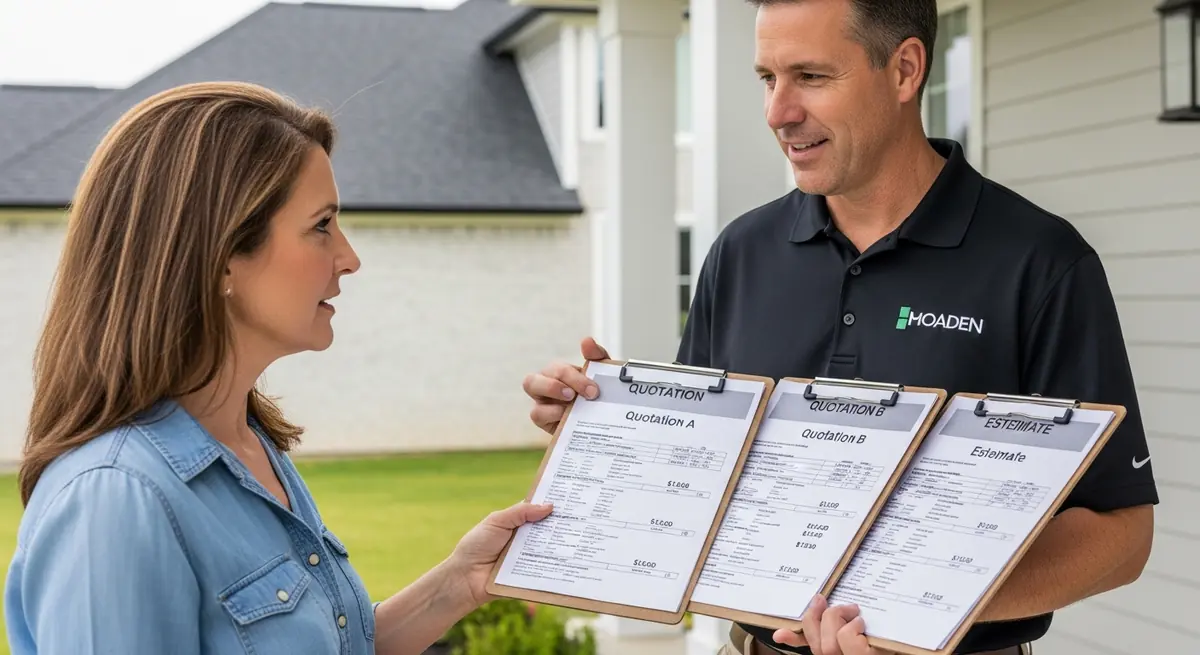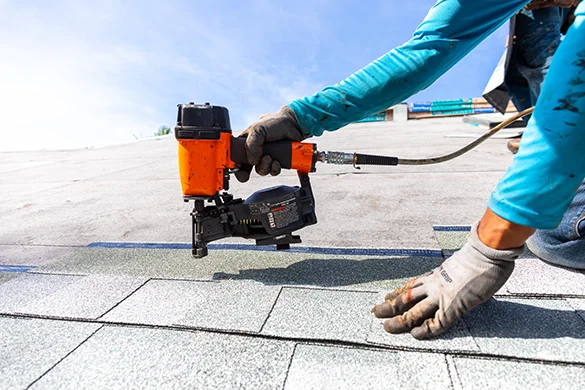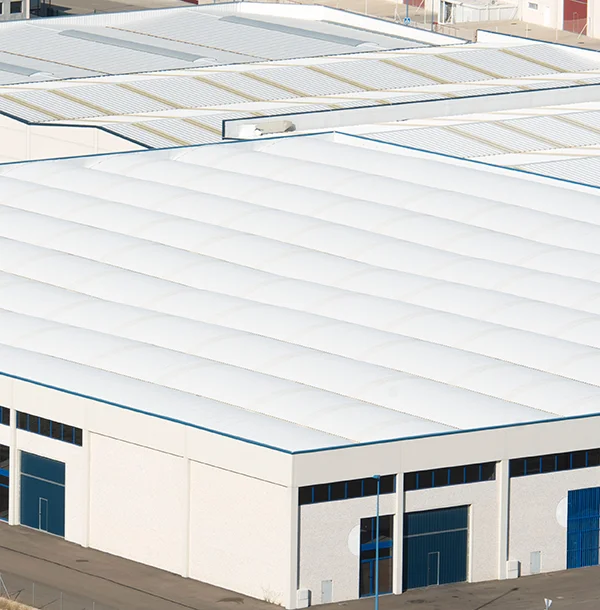Understanding Roofing Quotations: How to Compare Free Estimates from Contractors
Roofing quotations represent one of the most significant home improvement investments most homeowners will make, yet comparing estimates from different contractors often feels like comparing apples to oranges. A $8,000 quote from one contractor and a $15,000 quote from another for seemingly identical work leaves homeowners confused and uncertain. Understanding what roofing quotations should include, how to evaluate different pricing structures, and which details matter most transforms the selection process from guesswork into informed decision-making that protects both your home and your wallet.
What Should Every Roofing Quotation Include?
Complete roofing quotations provide far more than a single total price figure. Professional estimates detail material specifications including manufacturer names, product lines, and warranty coverage. They itemize labor costs separately from materials, outline project timeline expectations, and specify what preparation work, cleanup, and disposal services are included. Comprehensive quotes address permit requirements, insurance certificates, and payment schedules.
The most valuable quotations break down square footage calculations, explain underlayment and ventilation components, and detail flashing, drip edge, and ridge vent specifications. They clarify whether costs include removing existing roofing materials or if that's an additional charge. Quality contractors provide written guarantees on workmanship separate from manufacturer material warranties. When reviewing free estimates from roofers, these detailed components distinguish professional quotes from vague approximations.

Breaking Down Roofing Estimate Components
Understanding individual estimate components helps homeowners compare quotes accurately. Material costs typically represent 40-50% of total expenses for asphalt shingle roofs, with premium materials like metal or tile commanding higher percentages. Labor accounts for 40-50% and includes removal, installation, and cleanup. The remaining 10-20% covers permits, disposal fees, equipment rental, and contractor overhead.
Detailed estimates specify square calculations—roofing squares represent 100 square feet each, and most homes require 15-30 squares depending on size and complexity. Steep pitches, multiple valleys, skylights, and chimneys increase labor requirements and material waste, raising costs accordingly. Contractors should explain how these factors affect your specific quote. Transparent pricing builds trust and helps homeowners understand why estimates vary between properties.
Comparing Apples to Apples: Standardizing Estimates
Meaningful comparison requires standardizing quotes from different contractors. Create a comparison spreadsheet listing identical specifications: same shingle quality grade, equivalent warranty coverage, similar timeline commitments, and comparable scope of work. Request that all contractors specify whether quotes include tear-off, number of layers being installed, ice-and-water barrier coverage, and ventilation upgrades.
Ask each contractor to itemize costs for optional upgrades separately—premium shingles, extended warranties, or enhanced underlayment—so you compare base quotes on equal footing. This standardization reveals true pricing differences versus variations in scope or quality. Many homeowners discover that dramatically different quotes reflect different scopes rather than pricing discrepancies. Working with established Reston roofing contractors ensures consistent, professional quoting practices.

Red Flags in Roofing Quotations
Certain estimate characteristics signal potential problems. Quotes significantly lower than competitors—20-30% below average—often indicate shortcuts, inferior materials, or contractors who will demand additional payments mid-project. Verbal estimates without written documentation provide no protection if disputes arise. Estimates lacking contractor licensing numbers, insurance information, or physical business addresses suggest unlicensed or fly-by-night operators.
Pressure tactics demanding immediate decisions or deposits before receiving written quotes indicate unprofessional practices. Estimates failing to specify material brands or quality grades leave contractors free to substitute inferior products. Quotes excluding essential components like permits, disposal, or flashing replacement suggest incomplete scope that will generate surprise charges later. These warning signs help homeowners avoid costly mistakes when comparing roofing contractor estimates.
Material Quality Matters More Than Price
Roofing quotations often differ primarily in material quality rather than labor pricing. A quote using premium architectural shingles with 50-year warranties costs more than basic 3-tab shingles with 20-year coverage, even with identical installation labor. Contractor-grade materials purchased through professional supply channels outperform retail-grade products despite similar appearance and marketing claims.
Quality differences extend beyond shingles to critical components most homeowners never see. Premium underlayment provides superior protection compared to basic felt paper. Quality ice-and-water barriers prevent leak damage in vulnerable areas. Proper ventilation components ensure roof longevity regardless of shingle choice. Lower quotes often cut costs through inferior secondary materials that compromise long-term performance. When evaluating quotes for roof replacement in Northern Virginia, material specifications deserve careful attention.

Understanding Warranty Coverage in Quotes
Warranty terms significantly impact roofing quotation value but often receive insufficient attention during comparison. Manufacturer material warranties cover defects in shingles or roofing products, typically ranging from 20 to 50 years depending on product grade. These warranties protect against manufacturing failures but exclude installation errors or storm damage. Workmanship warranties from contractors cover installation quality for periods ranging from 1 to 10 years.
The most valuable warranty packages combine extended manufacturer coverage with comprehensive workmanship guarantees. Some manufacturers offer enhanced "system warranties" when contractors use all components from their product line—shingles, underlayment, starter strips, and ventilation. These systems warranties may cover both materials and labor, providing superior protection compared to standard coverage. Evaluate warranty terms carefully when comparing quotes, as longer protection often justifies higher upfront costs through reduced long-term risk.
Timeline and Scheduling Considerations
Roofing quotations should specify expected project duration and approximate start dates. Most residential roofing projects require 1-3 days for completion depending on size and complexity, though weather delays can extend timelines. Contractors with immediate availability may indicate insufficient demand due to quality issues, while those scheduling weeks or months ahead signal strong reputations but less flexibility for urgent needs.
Seasonal timing affects both pricing and availability. Spring and fall represent peak roofing seasons in Northern Virginia, with premium pricing and limited contractor availability. Winter quotes may offer discounts but face weather-related delays. Summer scheduling provides middle-ground pricing with good contractor availability. Consider these timing factors when evaluating quotes and planning projects for Herndon, Vienna, or surrounding areas.

Payment Terms and Deposit Requirements
Professional roofing quotations outline clear payment schedules protecting both homeowner and contractor interests. Typical arrangements require deposits of 10-25% to secure scheduling and order materials, with substantial payments due upon completion. Avoid contractors demanding 50% or more upfront—this signals cash flow problems or potential fraud. Never pay in full before work begins regardless of promised discounts.
Legitimate contractors accept multiple payment methods including checks, credit cards, and financing options. They provide detailed payment receipts and lien waivers protecting homeowners from subcontractor or supplier claims. Payment terms should tie to project milestones—completion of tear-off, installation progress, and final inspection—rather than calendar dates. These structured payment approaches protect homeowners while ensuring contractors receive fair compensation for work completed.
Questions to Ask Before Accepting Quotes
Informed homeowners ask specific questions clarifying quote details and contractor capabilities. Essential questions include: How many years has your company operated locally? Can you provide recent customer references and physical addresses of completed projects? What manufacturer certifications do your installers hold? How do you handle unexpected damage discovered during tear-off? What specific steps does your cleanup process include?
Additional critical questions address insurance and licensing: What insurance coverage do you carry and can you provide certificates? Are you licensed for roofing work in Virginia? How do you handle permit applications and inspections? What happens if weather damages work in progress? These questions reveal contractor professionalism and help identify potential issues before commitment. Similar diligence applies when comparing quotes for flat roof specialists or other specialized roofing needs.

The Hidden Costs Not Always Included in Quotes
Roofing quotations sometimes exclude costs that emerge during or after installation. Deck repair or replacement when rot is discovered during tear-off can add $500-3,000 to projects. Chimney flashing upgrades, skylight resealing, or satellite dish remounting often incur additional charges unless specifically included in original quotes. Some contractors exclude disposal fees ranging from $500-1,500 depending on material volume and local regulations.
Permit costs vary by jurisdiction, typically ranging from $150-500 in Northern Virginia localities. HOA approval requirements may necessitate specific shingle colors or styles affecting material costs. Unexpected complications like multiple existing roof layers, structural modifications, or code compliance upgrades can significantly increase final costs. Discuss these potential additions explicitly during the estimate phase to avoid surprises. Professional contractors outline probable additional costs upfront rather than surprising homeowners mid-project.
Insurance Claims and Roofing Estimates
Homeowners filing insurance claims for storm damage encounter unique quotation considerations. Insurance adjusters provide estimates based on standardized pricing databases that may differ from local contractor quotes. Experienced roofing contractors familiar with insurance processes provide detailed supplement requests documenting additional damage or needed repairs beyond adjuster assessments.
Quality contractors never offer to "waive deductibles" or promise to match any insurance payment—these practices violate insurance contracts and often indicate fraudulent operators. Legitimate professionals document all damage, provide comprehensive estimates including code upgrades, and work with adjusters to ensure fair settlements. Understanding these insurance considerations helps homeowners navigate claims while selecting qualified contractors. Learn more about insurance claim processes to protect your interests.

Local Market Pricing in Northern Virginia
Roofing quotations reflect regional market conditions, material costs, and local competition. Northern Virginia pricing typically ranges $350-600 per roofing square for standard asphalt shingle installation, with premium materials or complex roofs commanding higher rates. Local factors affecting quotes include proximity to material suppliers, prevailing wage rates, permit and disposal costs, and seasonal demand fluctuations.
Established local contractors often quote higher than traveling "storm chasers" but provide superior long-term value through warranty support, local reputation stakes, and ongoing service availability. Regional expertise matters—contractors familiar with Northern Virginia's climate, building codes, and HOA requirements deliver better results than out-of-area operators. Local market knowledge helps homeowners identify reasonable pricing ranges for areas including Fairfax, Arlington, and Alexandria.
Making the Final Decision
Selecting roofing contractors requires balancing multiple factors beyond simple price comparison. Evaluate contractor reputation through online reviews, references, and Better Business Bureau ratings. Assess communication quality—responsive, detailed answers to questions indicate professionalism and customer service commitment. Consider company longevity and local presence ensuring availability for warranty service or future repairs.
Review insurance and licensing documentation carefully. Verify workers' compensation coverage protecting homeowners from liability for worker injuries. Confirm liability insurance adequate to cover property damage during installation. Check contractor licensing with state and local authorities. These verifications protect homeowners from significant financial risks that low-price quotes never justify.

Why Lowest Price Rarely Means Best Value
The temptation to accept the lowest roofing quotation often leads to costly regrets. Contractors dramatically underbidding competitors typically cut corners through inferior materials, rushed installation, unlicensed workers, or inadequate insurance coverage. These savings disappear quickly when roofs fail prematurely, contractors disappear without honoring warranties, or homeowners face liability for worker injuries.
Quality roofing requires skilled labor, premium materials, proper safety equipment, adequate insurance coverage, and business infrastructure supporting warranty obligations. Legitimate contractors cannot deliver these essentials at prices far below market rates. The middle range of estimates typically represents fair pricing from reputable contractors, while outlier low bids signal problems. Investing in quality installation protects homes far better than saving money upfront on questionable contractors.
Ready to Get Professional Roofing Quotations?
Understanding roofing quotations transforms a confusing process into confident decision-making. By knowing what complete estimates should include, how to compare proposals accurately, and which red flags to avoid, homeowners protect their investments while selecting qualified contractors. Detailed quotations from reputable local contractors provide the foundation for successful roofing projects delivering decades of reliable protection.
Reston Roof provides comprehensive, transparent roofing quotations for homeowners throughout Northern Virginia. Our detailed estimates specify all materials, labor, timeline, and warranty information necessary for informed comparison. We take time to explain quote components, answer questions thoroughly, and ensure you understand exactly what your investment includes. Contact us at (571) 453-6515 to schedule a free, no-obligation roofing estimate. Our experienced team will assess your roof condition, discuss your options, and provide a detailed quotation helping you make the best decision for your home and budget. Don't settle for vague estimates or pressure tactics—get the professional assessment and transparent pricing you deserve.
